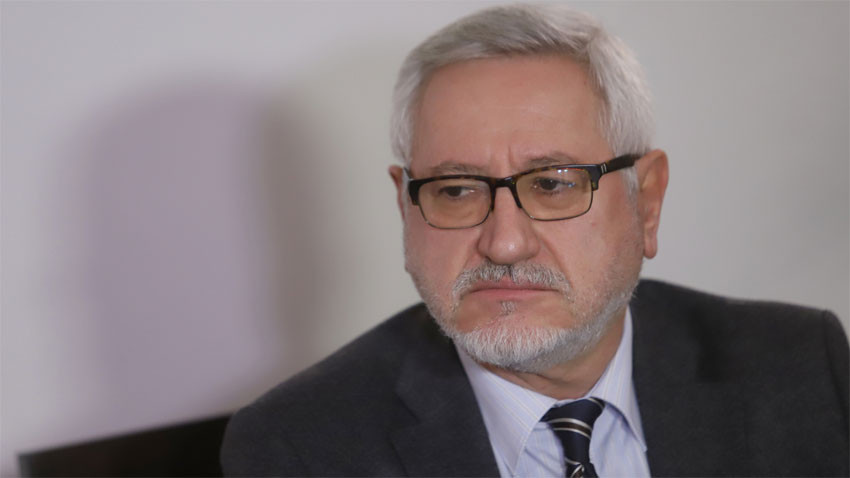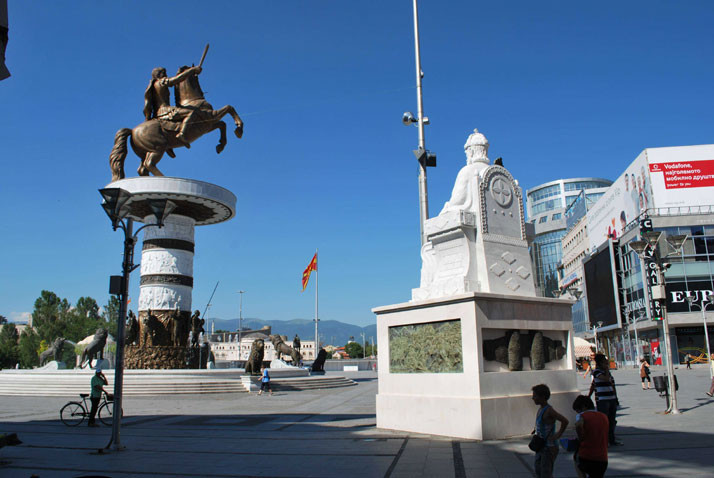Historians from North Macedonia have suspended the work of the joint Bulgarian-North Macedonian Commission on controversial historical and educational topics. Co-chairman of the Commission from the Bulgarian side, historian and diplomat Prof. Dr. Angel Dimitrov has told Radio Bulgaria more about the difficulties in the work of the commission.

“There was an intergovernmental commission that decided to achieve certain results by the end of the year. We are very far from them; from what is desired and possible. My assessment is unsatisfactory, especially for this year, as there has been a significant change in the attitude of my colleagues to the work of the commission, in understanding of its nature and in this sense in understanding of the Neighborhood and Friendship Agreement between the two countries.”
Is there any connection between the position of your colleagues from North Macedonia and the veto imposed by France on EU enlargement negotiations?
“No, I wouldn't say so. At its fourth meeting earlier this year, the best results were achieved. The Joint Commission agreed that it was appropriate for the two countries to celebrate together the day of the Holy Brothers Cyril and Methodius and that May 24 was a Bulgarian holiday and that outstanding figures from the Middle Ages, such as St. Clement of Ohrid and St. Naum, as well as Tsar Samuil were Bulgarians. As we approached the modern era and the figure of Gotse Delchev, there was a marked change. Gotse Delchev is actually a bright historical figure that unites the two countries. But obviously our colleagues can hardly understand why some adjustments should be made to their interpretation.”

North Macedonia's President Stevo Pendarovski told Skopje television: "Why do I need Gotse Delchev if he was a Bulgarian?"
“Well, here is the problem of our colleagues – they are driven by the logic of negation. They are running away from the term ‘common history’ but want it to be ‘shared’. But this does not change the foundation we call common history, which is actually the formation of Bulgarian nationality on a common territory as early as the 9th – 10th centuries. Regardless of the development of historical circumstances, this awareness of a common past continued as an indestructible link to the period of the National Revival and is the basis of the national liberation movement in the regions of Macedonia and Edirne Thrace.”
President Pendarovski also raised the issue that it was good for the Commission to attract international experts.
“There is a bilateral treaty between the two countries and there is no room for outside intervention. I personally do not see any distinguished professionals who could come and sit together with us in the position of mentors. Questioning your own knowledge and the ability to persuade others using scientific arguments is a serious problem.
What are your expectations for the Commission's work in 2020?
“At our latest meeting, our colleagues unilaterally decided to suspend work so as not to interfere with the forthcoming early parliamentary elections in North Macedonia. So far, they had been claiming to be operating without political pressure. Now, suddenly, the Commission's work has become an internal political problem. For us, this is unjustified and unacceptable. With this political ambiguity in the Republic of North Macedonia it is difficult to say when the Commission will resume its work. Depending on election results, we can either expect a slight revival or returning to the initial phase of our work, or we will see a final stalemate, which will be a very bad signal for the attitude towards the Friendship and Neighborhood Agreement.”
It is noteworthy that the position defended by Bulgarian experts in the Commission has support from all the political spectrum in Bulgaria. Do you hope that this support will be preserved in the future and does Skopje expect changes in the Bulgarian position?
“Look, I know very well what life in our young neighbor is. I want to tell you that there exists an attitude that Bulgaria would not be an obstacle and it is true because we do not have such a desire. But they imagine that somebody could impose full consent on Bulgaria on everything that comes from Skopje. Of course this will not happen. And I am convinced that this support for the European integration of North Macedonia will be preserved, as our neighbor's membership in NATO and the EU would bring positive changes in North Macedonia. But on the other hand, as the country moves forward on the path to its European integration, we will be demanding for the implementation of the Friendship and Neighborhood Agreement. Creating truly friendly and neighborly relationship is imperative. It is very important to know that in this politically unstable region this is one of the most stable guarantees for creating more security and opportunities for prosperity.”
English: Alexander Markov
Photos: BGNES and Ivo IvanovRomanian police and military personnel worked as mercenaries in Congo According to a report by the Romanian Ministry of the Interior, 11 of its employees worked as mercenaries in Congo while on sick leave, Digi24 reported. The Ministry..
Protesting Serbian students to cycle 1,300km to Strasbourg A group of 80 protesting students and other people from four Serbian universities – in Novi Sad, Belgrade, Niš and Kragujevac started cycling from the campus of..
Protests in Turkey continue after Istanbul mayor's arrest Mass protests in Turkey continue after Istanbul mayor Ekrem İmamoğlu was arrested on March 19. Nearly 1,900 people have been detained for participating in the..

+359 2 9336 661
